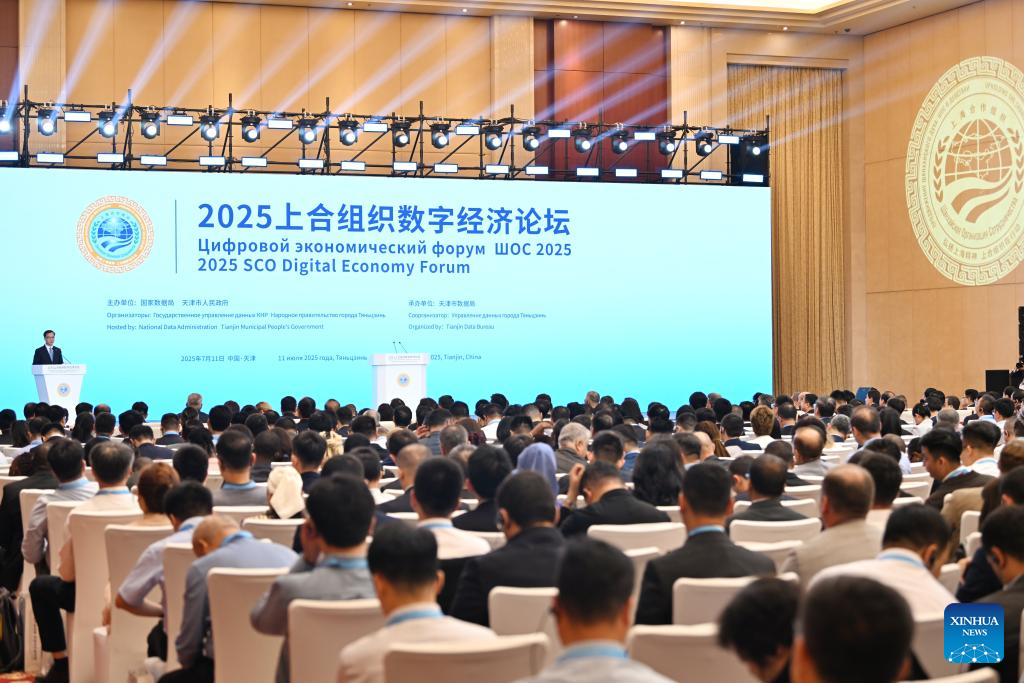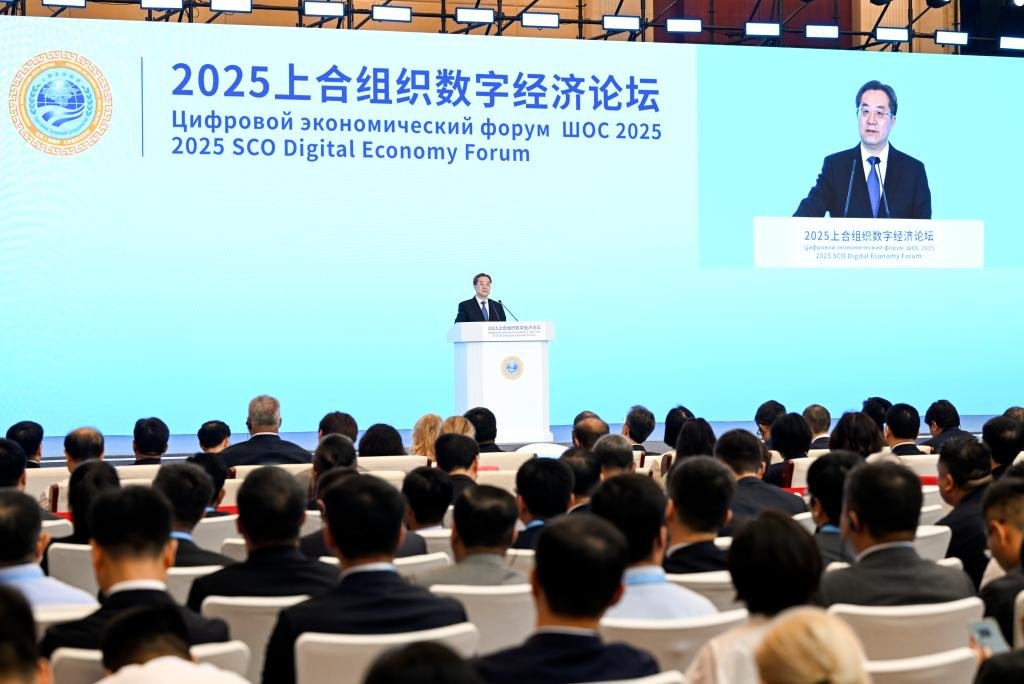Tianjin (TDI): Chinese Vice Premier Ding Xuexiang has called on member states of the Shanghai Cooperation Organization (SCO) to accelerate efforts toward a shared digital governance framework, as the 2025 SCO Digital Economy Forum opened on Friday in the northern Chinese city of Tianjin.
Delivering a keynote address at the forum’s opening ceremony, Ding—who is also a member of the Standing Committee of the Political Bureau of the Communist Party of China (CPC) Central Committee—emphasized the importance of aligning regional strategies with the global digital governance agenda.
He urged member countries to intensify cooperation on digital infrastructure, policy integration, and innovation in order to meet the challenges and opportunities posed by rapid digitalization.
“In the face of profound changes brought by the digital age, we must move from dialogue to implementation,” said Ding. “It is imperative that we accelerate the implementation of the consensus reached by the SCO Heads of State Council and work collectively to promote the Global Digital Compact.”
The Global Digital Compact, a UN-backed initiative currently under discussion by the international community, seeks to establish universal principles for digital cooperation, data flow governance, and technology ethics. China’s reference to the compact signals Beijing’s willingness to position the SCO as a key multilateral bloc in shaping these evolving global norms.

The forum, themed “New Bonds in the Digital Economy, New Horizons for Cooperation,” brought together over 1,500 representatives from SCO governments, enterprises, academic institutions, and think tanks. It was co-organized by China’s National Data Administration (NDA) and the Tianjin Municipal People’s Government.
Ding outlined several priority areas for collective action. These included enhancing the connectivity of digital infrastructure across the SCO region, improving computing power and data processing capabilities, and jointly building a high-quality Digital Silk Road. He further called for the establishment of a multilateral and collaborative digital security governance system that ensures equitable access to digital tools and protects user rights across borders.
“We must enable all SCO countries to access the fast track of digital economic development,” the vice premier said, noting that digital transformation should serve inclusive growth and not exacerbate inequality.
China has been positioning itself as a central player in digital governance discussions, both regionally and globally.
The SCO forum is seen by observers as part of Beijing’s effort to shape an alternative digital cooperation model—one that emphasizes state sovereignty in cyberspace while advocating for international rule-making through multilateral channels like the United Nations.
Ding also underscored the need to strengthen cooperation in policy coordination, legal frameworks, and standard-setting, particularly in areas such as cross-border data flows, AI regulation, and smart city development.
He called on SCO member states to actively participate in the institutional development of digital governance and offer constructive input to ongoing global negotiations.
Throughout the day, participants engaged in multiple sub-forums covering data governance, industrial digitalization, digital education, and urban tech infrastructure, reflecting the wide scope of cooperation envisioned under the SCO’s evolving digital economy agenda.
Chinese officials noted that the Digital Economy Forum was intended not only as a showcase of technological potential but also as a platform for shaping policy consensus on digital futures in Eurasia. Several announcements during the event—including the signing of 21 project deals worth 1.35 billion yuan—highlighted the growing role of the digital economy in SCO collaboration.
The Diplomatic Insight is a digital and print magazine focusing on diplomacy, defense, and development publishing since 2009.



